And what a special and meaningful family heirloom it is!
Happy Valentine’s Day Pamela!
Best,
Esther / MyHeritage Team


While many are in search of love this Valentine’s Day, we thought we’d take a step back in time and see what love looked like before text messages, emojis or e-cards were sent— when love was communicated through expressive, handwritten letters.
Last week we asked our readers to send in their ancestors’ love letters. We were so overwhelmed and touched by these gestures of love and romance from yesteryear that we couldn’t wait to share them.
While there were many to choose from, here are our three favorite love letters from over a century ago.
Louise Goldstein shared with us excerpts from two letters that his grandfather, Louis Battalen, wrote to his fiancée, Fenya Ronen, who would become Louise’s grandmother. They had over two years of correspondence, first when they were both in Russia and after Louis had arrived in New York and Fenya was waiting for him to send for her.
When she arrived in April 1913, she was just 19 and he was 21. Their first child was born the following May. They raised four children together and they died in their late 50s, within two years of each other.
Letter#1: Early confession of love, probably late 1910- early 1911I can’t hide my feelings any longer…In your presence I don’t recognize myself, seeing you I feel only agitation in my soul and I’m both happy and sad. I’m happy to see you but at the same time my soul is suffering. I would so like to convey my feelings to you but I can’t, it’s like I’m mute, Fenichka – I can’t take it anymore! I didn’t want to use words of love, I wanted you to understand me but I can’t, I love you. Fenichka, you put a spell on me, without magic you put a spell on me! I myself don’t know how I came to love you…and I don’t care what it takes. I can’t live happily in peace for even a minute without you…
Letter #2: Upon receiving a letter after a long silence, September 12, either 1911 or 1912
Unexpected happiness!
Thank you, Fenichka. With this letter you are the queen of my soul…[if] you were here right now, you would easily see how I glow. I had almost lost all hope; I won’t describe the hellish way I suffered because of it. Well, Fenichka, what can I do? I met you, and from that moment I was overwhelmed. I came to love you with a genuine love. I don’t know, after all you aren’t the first girl I ever met in my life, and at the time of the attraction I was sure that it was temporary, that I was being carried away by passion and that I’d soon forget. You I came to love as a Goddess, and from the first day you were sacred to me. It all seems strange to you, dear, but I’m not surprised by this strangeness… [to me this is] not blind passion, but true love.
Janet Isenberg shared with us a love letter written by her great-great-grandfather, Benjamin Wolff, to her great-great-grandmother, Karoline Löwenstein, shortly before their marriage on November 1, 1859.
Münstereifel, September 20, 1859My Deeply Beloved Fiancee,
With this letter I send you, dear fiancée, and your family some honey which you should eat in good health. If you enjoy the honey and should it be difficult for you to purchase more of it, you can, dear fiancée, let me know in your next letter and I will see to it that you get some more. This week I bought for myself approximately 20 pounds.
I received, dearly beloved fiancée, your letter and was delighted to hear about the well-being of you, your dear parents and your siblings.
You did me an injustice, dear fiancée, in reference to Mr. Abeyer from Cologne, saying that I had a roving eye when you, dear fiancée, were not looking. You did pardon me in your letter, but this was discretion on your part. It would hurt me deeply if this was true, and it did not end in the way you wrote me. I do not feel the way you suggested that I should feel, that is “out of sight and out of mind.” You, my beloved fiancée, never leave my thoughts. Wherever I walk and stand, you, my beloved fiancée, are with me and the time passes slowly until we are together again.
Your dear father wrote me in his letter that the wedding should be on November 10. This would be fine with me, but I do have a problem with it. This is the week that my first wife, bless her memory, has Jahrzeit (the anniversary of her death) and that means that my child and I have to fast. If someone from Oberdrees would like to come to my wedding, this would bring back too many memories. Therefore I would appreciate it, if your dear parents have nothing against it, if we could change the date of the wedding to November 1. By then, the crops should be harvested, but if they are not completely finished, either I would come and help them after the wedding or they should hire someone at my cost. I am satisfied that November 1 is a Tuesday and would you, my dears, could come to Euskirchen and stay at the guest house Abety. I would pick you up on Sunday, since I have to balance the books with my father. I would be delighted if your dear father would be present since he has greater knowledge at balancing the books. I hope that this is all right with your parents.
My father-in-law from Oberdrees visited me this week and could hardly recognize the child. He took David shopping to a market at Hoen in the Eifel. They noticed new things that would make you wonder. Namely, this leaf stand that really annoyed me. The child told everybody that his father was getting him a new mother and he bought a portrait of a child kissing its new mother and hung it on the wall. It’s true, dear fiancée, that this makes no sense, but let people talk what they want to talk about. I have God to be thankful for and no one to ask. You can’t make bad people stop talking and it is still better to envy than to suffer.
I have to write you something else. Aloses Cohn from Cologne lost 100,000 and left for America.
For now dear fiancée I want to close this letter, and greet and kiss you a 1,000 times, from your ever-loving fiancé,
Benjamin Wolff
Dear fiancée, I would like to know whether the coats should be winter coats or summer coats. I presume it is summer coats.
Finally, Pamela Whitaker shared a letter written by Richard Mark Whitaker, her husband’s great-grandfather, to his beloved, Mary Elizabeth Anderson in 1844, proposing marriage. The text Pamela sent preserves the spelling and punctuation of the original letter.
Dear Miss
Think it not strainge that I shall tell you the truth and tell you that, I have a long time been broiling in the flames of my ardent affection towards your dear self, and never had the opportunity or hapiness to discover my love to you as I wishe before now, with which I hope fortune hath favored me for a good end. I have taken this plan to relate to you again something that (I talked with you about earlier) is marring and I am more in the notion of marring now than when I was then the only reson is my present situation the misfortion that I have met with has caused me to be more anctious to marry than I ever was notwithstanding I have been in the notion of marring providing I could have married the one I wanted and you was the one and is the one now on whom I have placed my affections on and will marry if it is concistant with thy will and affections There is more Love in my heart to you than tung can express, therefore if any tender pity lodges in that snowy breast, be pleased by a kind answer to ally the storms of my raging passion and forever make him happy who subscribes himself
Yours beyond expression
R.M. Whitaker
Richard was born in Halifax County, North Carolina and was the son of a Revolutionary War Patriot, John Whitaker, Jr. The Whitakers descend from the Jamestown Colony through Jabez Whitaker and Mary Bourchier. Richard did eventually marry the “miss” he was writing to, Mary Elizabeth Anderson, and the couple had four children before Mary died.Pamela also sent us a photograph of her husband Allen and their two sons; Alex and Wes with James Allen Whitaker, Sr. — the grandchild of Richard Mark and Mary Elizabeth Whitaker.
![Love Letters: R.M. and Mary Elizabeth's descendants. From left, Allen Whitaker, great- grandchild, James Allen Whitaker, Sr. grandchild, and Wes and Alex Whitaker, great-great-granchildren. [Credit: Pamela Whitaker]](https://blog.myheritage.com/wp-content/uploads/Allen-Sr.-with-Allen-Jr.-Wes-and-Alex.jpg)
R.M. and Mary Elizabeth’s descendants. From left, Allen Whitaker, great-grandchild; James Allen Whitaker, Sr., grandchild; and Wes and Alex Whitaker, great-great-grandchildren. [Credit: Pamela Whitaker]

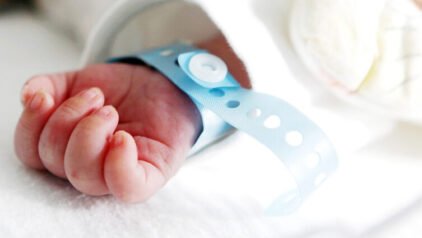
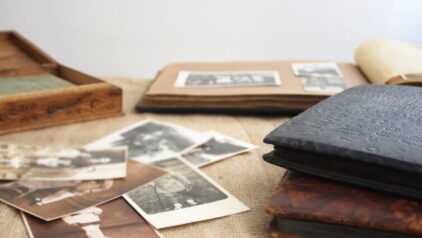
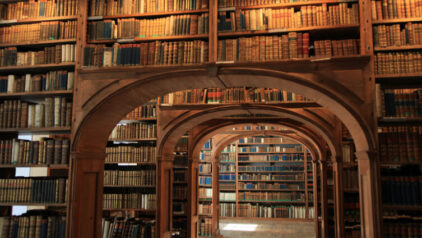
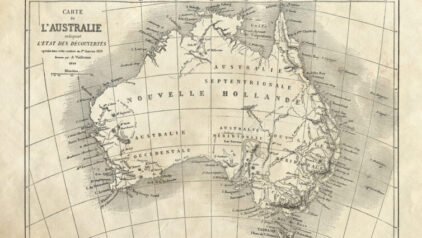


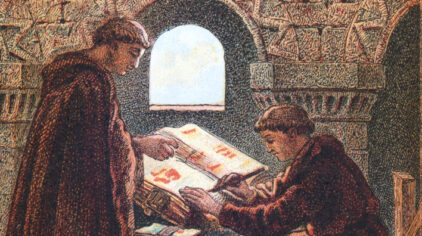
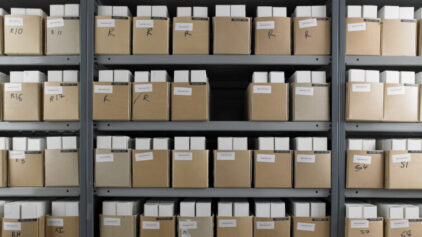
February 14, 2019
And what a special and meaningful family heirloom it is!
Happy Valentine’s Day Pamela!
Best,
Esther / MyHeritage Team
Pamela Whitaker
February 14, 2019
I am so proud and happy to have had Richards letter chosen for this! Thank you for the opportunity!